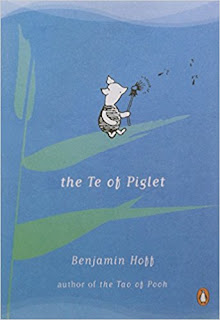 It takes continual effort to impair a child's natural drive to mature, just as it takes willful effort to stop them from responding to their bodies' needs. When children are trapped for years on end in a closet or cellar (or sensory disability) without any contact with adult activities like walking and talking, yes, children will fail to progress appropriately. For some reason, though, this realisitic concern has bled over onto everyday parenting. Ironically, the result of trying to force children to mature is actually to stunt their growth.
It takes continual effort to impair a child's natural drive to mature, just as it takes willful effort to stop them from responding to their bodies' needs. When children are trapped for years on end in a closet or cellar (or sensory disability) without any contact with adult activities like walking and talking, yes, children will fail to progress appropriately. For some reason, though, this realisitic concern has bled over onto everyday parenting. Ironically, the result of trying to force children to mature is actually to stunt their growth. Benjamin Hoff, in The Te of Piglet, describes a time in Chinese history when people felt it was essential for children to learn the art of conversation as early as possible. While the activities that directed this early learning were absolutely effective, the unintended side effect of all that focus on early talking was to push later and later and later the onset of walking.
Benjamin Hoff, in The Te of Piglet, describes a time in Chinese history when people felt it was essential for children to learn the art of conversation as early as possible. While the activities that directed this early learning were absolutely effective, the unintended side effect of all that focus on early talking was to push later and later and later the onset of walking.Today, much the same thing can be seen in the early reading programs: yes, it is possible to teach a child's brain to decode written language earlier than it would on its own. So? At what cost is this 'earlier is better' promotion of reading? I don't know, but it is not possible to divert the energy of the brain's development from its natural path and not derail some other development.
Do early readers wind up as better readers? Absolutely not. I have personally known children who read before their third birthday because their brains were clearly attuned to that task. Today they are indistinguishable from their peers... in fact, they are indistinguishable from the many children I have known who didn't catch on to reading until they were 12. This is also the case with potty training, walking, dancing and playing the violin: by the age of 18 it is impossible to tell who started at 2 and who didn't start until 12.
Beyond this, where is the evidence that all this coercion to do things as early as possible isn't solely responsible for the arrested development seen in the 20-somethings who still wear what look like toddler's clothes and carry stuffed animals (or wear costume ears or tails everywhere) and respond to challenging tasks exactly like 2-year-olds: by refusing to do anything at all, with or without a temper tantrum?
Where is the evidence that it is safe or healthy to manipulate the growth and development pattern of a child?
 There is a lot of fear that a child will be (to quote the frightful US government program) 'left behind' if she doesn't get pushed ahead as fast as possible. Well, there is a lot of fear in parenting and children's education, period. But what benefit does this fear of the future have for kids? Children become aware that they are 'behind' or that others are 'ahead' and because of our deranged and contradictory values, quickly learn to believe that this is the same as failing--and worse: being worth less. Their self-esteem becomes predicated on things outside their control (viz: the growth pattern of their brains), which is a simple recipe for a lifetime of misery.
There is a lot of fear that a child will be (to quote the frightful US government program) 'left behind' if she doesn't get pushed ahead as fast as possible. Well, there is a lot of fear in parenting and children's education, period. But what benefit does this fear of the future have for kids? Children become aware that they are 'behind' or that others are 'ahead' and because of our deranged and contradictory values, quickly learn to believe that this is the same as failing--and worse: being worth less. Their self-esteem becomes predicated on things outside their control (viz: the growth pattern of their brains), which is a simple recipe for a lifetime of misery.Children, given space and time and access to a variety of people in a variety of settings, will learn everything they need to know, develop all parts of their brains, and become (eventually -- not immediately) well-rounded, fully-grown adults. Just as it is not possible to make an infant into a physically-mature, full-grown adult in 6 years, it is not possible to make an infant into an emotionally-mature, fully-educated adult any faster than it will happen on its own. It is possible to stunt growth, but it is not possible (or desirable) to accelerate it.


